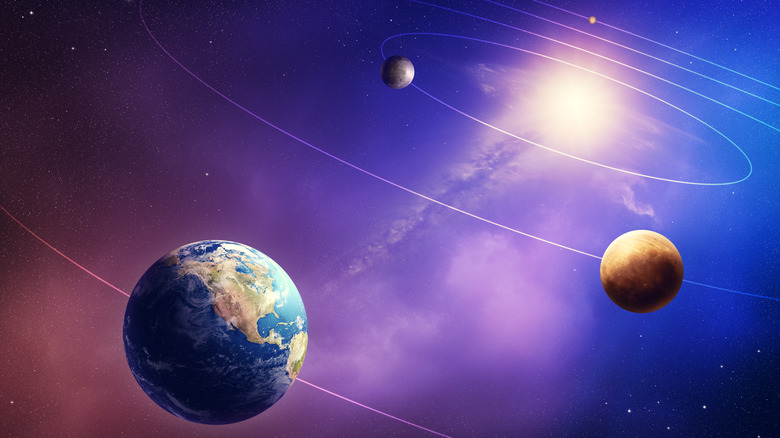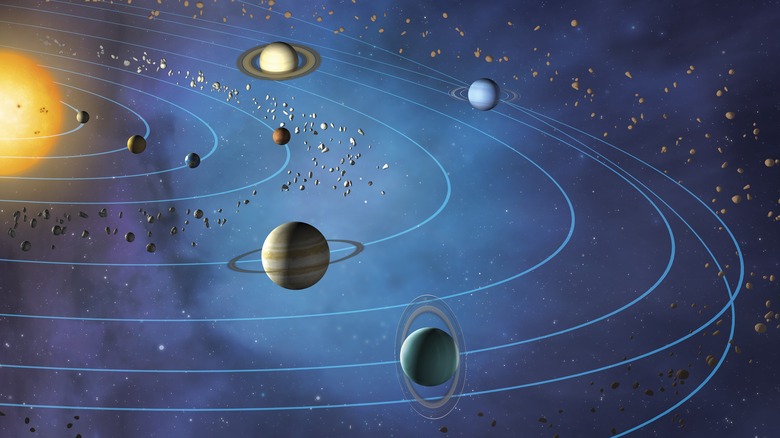How Many Seconds Are In A Day On Earth And Other Planets In Our Solar System
As is general knowledge, we track a day on Earth as lasting for 24 hours, which amounts to 86,400 seconds. However, this is just the average time that it takes for our planet to complete one rotation on its axis based on the Sun's transit over the same longitudinal meridian, which scientists refer to as a solar day. The actual number of seconds that a day on Earth lasts is more complicated.
The first factor to consider is a sidereal day, which is how long it takes Earth to complete a full rotation based on fixed stars. Since the orbital motion of our planet makes the Sun appear to move eastward relative to the stars, it has to rotate 361 degrees rather than just 360 degrees between each solar noon, which means a solar day takes about nearly four minutes extra (or 236 seconds) than a sidereal day. As a result, scientists have determined that a mean sidereal day is 23 hours, 56 minutes, and 4.091 seconds exactly (86,164.091 seconds total).
The second factor to consider is that the Earth's orbital speed varies, which is why days are longer and shorter throughout the year. The planet moves fastest in early January during perihelion, which is its closest point to the Sun, and moves slowest in early July during aphelion, which is its farthest point from the Sun. Even the timing of these points fluctuates because of the Moon's effect on Earth's orbit. As a result, there are only four days out of the year that are exactly 86,400 seconds. Otherwise, the length deviates by plus or minus four seconds.
The length of a day in seconds on other planets
The amount of time it takes for the other planets to complete one full rotation on their axes is much different than that of Earth. For instance, the length of a day on Mercury is about 5.068 million seconds because this innermost planet rotates slowly. Compared to Venus's revolution period in Earth days, which is around 19.44 million seconds, it turns on its axis at a snail's pace, taking about 20.99 million seconds to spin around. Although Venus is known as our sister planet, the amount of time in one day on Mars is around 88,560 seconds, which is much more similar to Earth.
Beyond the asteroid belt, the characteristics of Jupiter in relation to its axial rotation are significantly different. Spinning in only about 35,700 seconds, its day is the shortest in our solar system, and it only has a 3-degree tilt, so it sits nearly fully upright. The facts about Saturn are similar in that its day lasts only around 37,980 seconds – Earth's day is almost 2.3 times that. Meanwhile, Uranus turns nearly 1.75 times slower than Jupiter, taking about 62,040 seconds to fully rotate, but its tilt is the greatest in the solar system at 97.77 degrees. Along with being the outermost planet, the facts about Neptune include that its day is around 57,600 seconds, 1.5 times faster than Earth.

